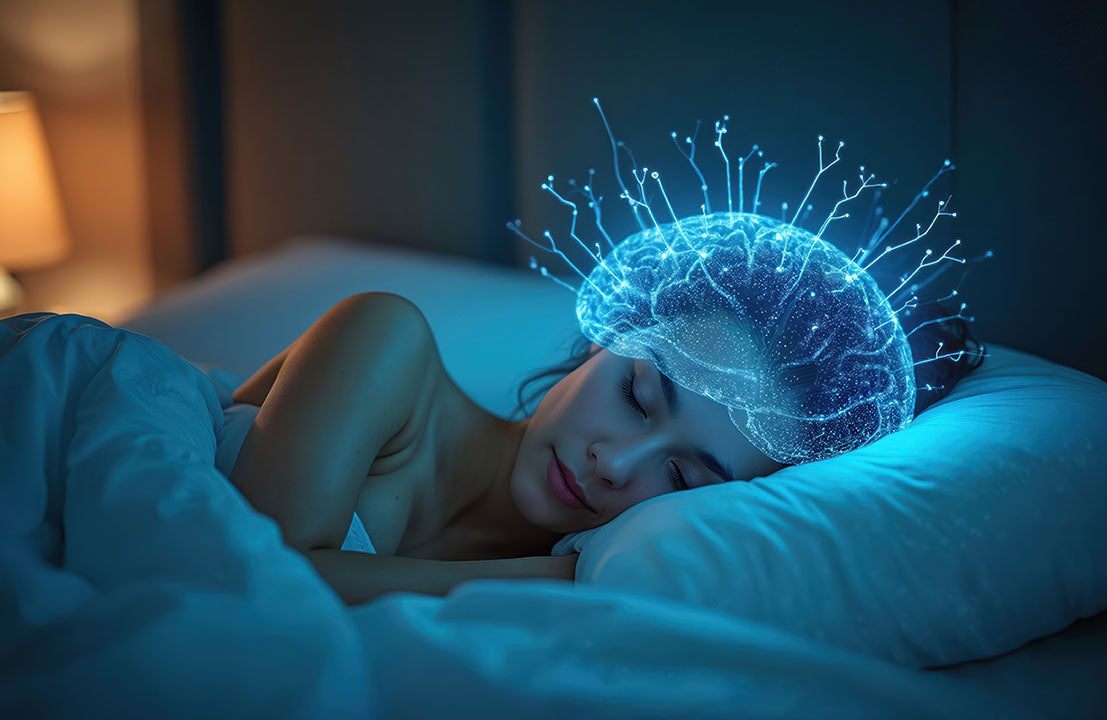
The Search for a Good Night’s Sleep
You’re tired but can’t fall asleep. You’ve tried everything — cutting caffeine, turning off screens, even counting sheep. Now, you’re considering natural sleep aids like CBD and melatonin — but which one actually works better for sleep?
Both have become popular options for those who want to avoid prescription sleep medications, but they work in very different ways. Let’s break down the science behind each so you can find what’s right for your body — and your bedtime routine.
What Is Melatonin?
Melatonin is a natural hormone your body produces in response to darkness. It helps regulate your sleep-wake cycle(circadian rhythm) by signaling that it’s time to wind down.
Melatonin supplements are widely available and are often used for:
-
Jet lag
-
Shift work sleep issues
-
Occasional insomnia
However, melatonin doesn’t make you sleep — it simply tells your body it’s time for rest.
🧠 Potential Drawbacks of Melatonin
While melatonin can be helpful short-term, some people experience:
-
Grogginess the next morning
-
Vivid dreams or nightmares
-
Hormonal imbalances with long-term use
-
Diminishing effects over time
That’s where CBD comes in as a gentler, more holistic option.
What Is CBD?
CBD (cannabidiol) is a natural compound found in hemp. Unlike THC, it doesn’t cause a high. Instead, CBD interacts with your body’s endocannabinoid system (ECS) — a network that helps regulate sleep, mood, and stress.
CBD may support sleep by:
-
Reducing anxiety and mental restlessness
-
Easing muscle tension and discomfort
-
Supporting deeper, more restorative sleep cycles
Rather than acting as a direct sedative, CBD helps balance your body’s internal systems, making it easier to relax and fall asleep naturally.
CBD vs. Melatonin: How They Work Differently
| Feature | CBD | Melatonin |
|---|---|---|
| How it works | Supports the endocannabinoid system to reduce stress and promote calm | Signals the brain it’s time to sleep by mimicking natural melatonin |
| Onset | 30–60 minutes | 20–40 minutes |
| Duration | May support long-term sleep balance | Short-term use recommended |
| Best for | Anxiety, stress-related sleep issues, chronic insomnia | Jet lag, circadian rhythm adjustment |
| Side effects | Generally mild; dry mouth, drowsiness | Grogginess, vivid dreams, hormonal changes |
| Tolerance | Unlikely to build tolerance | Tolerance can develop with long-term use |
What the Research Says
-
A 2019 study in The Permanente Journal found that 67% of participants reported improved sleep and 79% reported reduced anxiety after using CBD.
-
Studies on melatonin show that it can shorten the time it takes to fall asleep — but it doesn’t always improve total sleep time or quality.
-
Many users report that CBD helps them fall asleep more naturally, without feeling sedated.
Can You Take CBD and Melatonin Together?
Yes — many people find that combining CBD and melatonin creates a synergistic effect: melatonin helps signal bedtime, while CBD calms the mind and body.
Some CBD sleep products (like gummies or capsules) include both ingredients for this reason. Always start with low doses to see how your body responds.
Which One Is Right for You?
If you…
Struggle with anxiety or racing thoughts: Try CBD.
Have jet lag or temporary sleep issues: Try melatonin.
Want a balanced, natural sleep cycle: Consider CBD, or a blend of both.
Final Thoughts
Both CBD and melatonin can support better sleep, but they work differently. Melatonin signals your body to rest, while CBD helps create the calm conditions needed for it.
If stress and anxiety are keeping you up, CBD may be the more holistic choice for lasting rest.
✨ Discover Soulful Bee’s CBD products designed to help you unwind, relax, and rest better—naturally.


